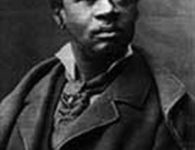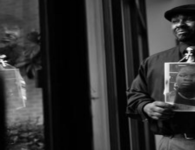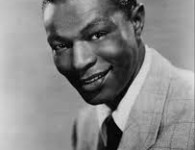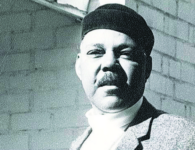The Ashanti ruled by what they believed was divine right. The Golden Stool was said to be handed down from their guardian god Nyame. As a result, they viewed this invading colonial presence as a major problem. However, as the decades wore on it was felt that negotiation might be a better course of action in dealing with the British. The Fourth Anglo-Ashanti War would show that they would be wrong.
THE FOURTH ANGLO-ASHANTI WAR
After two decades of relative peace, another short war broke out. The roots of this conflict came about after the Ashanti King Prempeh I turned down an offer to become a British territory from 1891 to 1894. Kumasi looked to be a very important place for the British strategically and economically.
Prempeh I sought to keep colonial forces at arm’s length and opted instead to send gold and other valuable goods to London in order to sate the British. The Crown intended to take Kumasi anyway and the heavily armed forces of Major Robert Baden-Powell marched on the capital. The Ashanti didn’t attack as Prempeh didn’t like the odds of annihilation. Meanwhile, the British troops were dying off from illness.
Since the king wouldn’t or couldn’t pay the 50,000 ounces of gold he was arrested and had to sign a treaty. To make the Ashanti people more manageable, the British had Prempeh I, the thirteenth king and several leaders were exiled to Seychelles, over 930 miles off the coast of east Africa. Later he would return and become a Chief Scout of the Gold Coast.
The fourth Anglo-Ashanti War was bloodless as no one died from combat. As for Prempeh I, his story doesn’t end here as he would play a role in the final war, one over the Golden Stool.
THE FINAL CONFLICT: WAR OF THE GOLDEN STOOL
The War of the Golden Stool or Fifth Anglo-Ashanti War started as a result of arrogance on the part of the British. With a railroad heading to Kumasi was two years into being built, colonial Governor Frederick Mitchell Hodgson arrived and stated that he should sit on the Ashanti’s Golden Stool. Taken from Wikipedia, his speech about the Golden Stool included:
“Where is the Golden Stool? I am the representative of the Paramount Power. Why have you relegated me to this ordinary chair?
Why did you not take the opportunity of my coming to Kumasi to bring the Golden Stool for me to sit upon? However, you may be quite sure that though the Government has not received the Golden Stool at his hands it will rule over you with the same impartiality and fairness as if you had produced it.”
There was also the issue of political anonymity and bringing back Prempeh I which Hodgson turned down.
Now, this was a case of Kumasi and Ashanti-held territory being Britain’s turf now and feeling that he could sit on the counter or kick his feet up on the table. Hodgson ordered that the throne be retrieved. Little did he know that the Ashanti—knowing how the British were with such things—hid one of their greatest symbols.
AT WAR
Led by the Queen-Mother of Ejisu, Yaa Asantewaa, They would also attack the soldiers out searching for the Golden Stool. As was the case with most Ashanti conflicts, they outnumbered Hodgson’s team with a force of 12,000. Those who managed to survive the Ashanti’s attack fled to a stockade that had high walls and artillery.
Unfortunately, there were few soldiers at the stockade and was mostly civilians. The Ashanti also managed to cut wires, killing communication with the coast. The stockade managed to get reinforcements of 700 in June 1900 but illness didn’t help their cause and an escape was made.
The following month a force of 1,000 arrived in Kumasi bringing heavy artillery and better-armed troops. The Fante teamed with the British and managed to defeat those holding out in Kumasi.
Several leaders of the Ashanti including the Queen-Mother were exiled. Prempeh I returned in 1924 and would rule again. The British wouldn’t get their hands on the Golden Stool for 20 years when it was found by native laborers. Handed over to the British, it was largely stripped of golden and viewed as worthless to the Ashanti.
The laborers who found the stool were to be put to death but the British stepped in and had them exiled as a compromise.
REFERENCES
–http://warfarehistorian.blogspot.com/2012/10/anglo-asante-wars-1824-1906-hundred.html
-https://en.wikipedia.org/wiki/War_of_the_Golden_Stool





















No comments